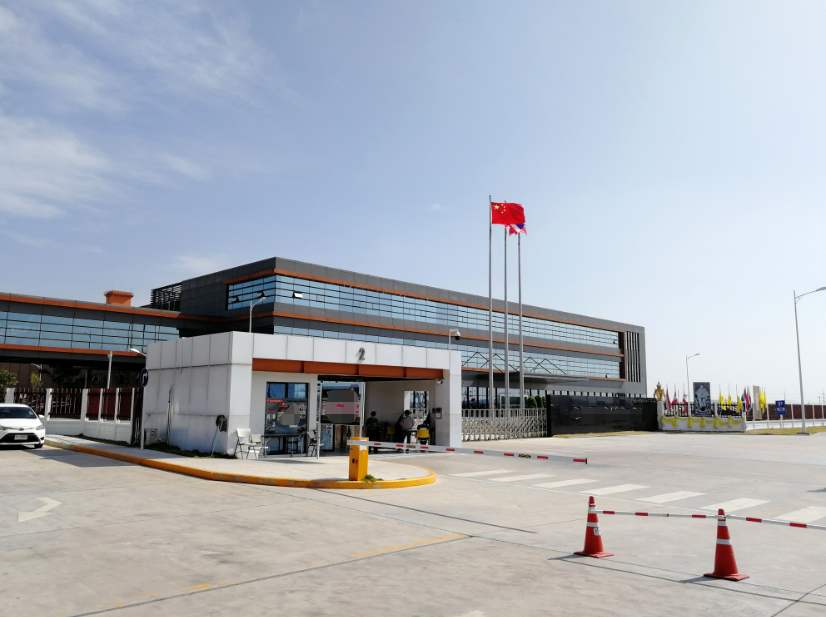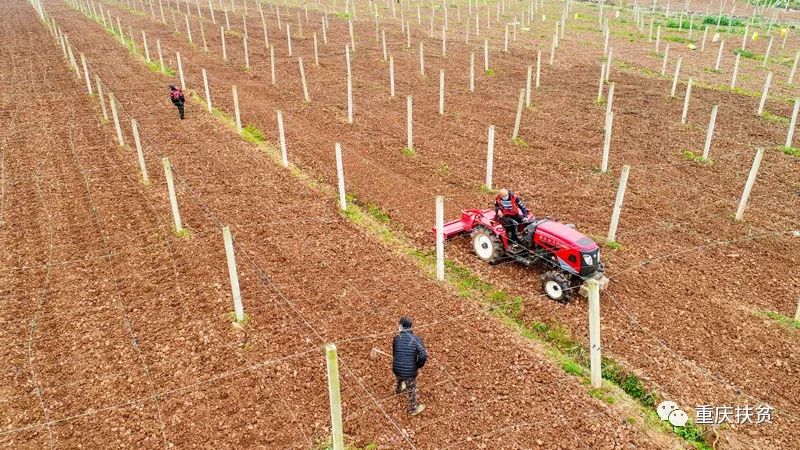Introduction
The world agriculture could not run without the contribution of large fertiliser companies. This industy’s companies are known fro their developments necessary to safeguard a higher global crops outcome or improve food security all over the world. Their advanced technologies, major distribution channels make these corporations the top contributors to the biggest food production by satisfying global population’s growing demands. The SHANDONG LOYAL CHEMICAL CO.,LTD is a favourite in this market.
More than merely providing critical nutrients for crops, the way these big companies shape the fertiliser market drives economic growth in the agricultural sector, supports market interests, and convinces and encourages farmers to adopt sustainable practices. Big fertiliser companies conduct research and development to enhance the efficiency of fertilisers and develop solutions for environmental issues such as nutrient runoff and greenhouse gases.
This case research serves to elucidate the profound influence of major fertiliser corporations and argues that the work of SHANDONG LOYAL CHEMICAL CO.,LTD and others like it is as much about shaping as being shaped by the agricultural sectors they serve. It enables modern agriculture to not just feed the rapidly expanding human population but also do so in a way that is sustainable and efficient.
Profile of SHANDONG LOYAL CHEMICAL CO.,LTD
SHANDONG LOYAL CHEMICAL CO.,LTD has been our consistent choice in worldwide fertilizer field. It’s remarkable that this Chinese fertilizer company has grown into a several-thousand-ton-scale industry. It has also developed its own brand for fertilizer production, adhering to quality, innovation and green-environment protection for more than 10 years.
SHANDONG LOYAL CHEMICAL CO.,LTD was established in 2000s, which is one of the earliest corporations producing basic chemical components and plant essentialities in Shandong province, an industrial belting city in China.
SHANDONG LOYAL’s product line includes a full range nitrogen fertiliser, phosphate fertiliser, potash fertiliser and the whole series of organic farming fertilisers, which can fully meet the needs for all plants nutrients and soil influences. This product is known for its high efficiency and feasibility. It is a product of the company’s strong investment on research and development.
Over the years, with the deepening of multidisciplinary and cross-field combination of research, Shandong LOYAL has led the new trend of fertilizer technology innovation. The purpose of innovation is not only to improve the performance of fertilisers, but to well adapt to the needs of different plants at different stages, maximise absorption efficiency and reduce fertilisers waste. For example, with slow releasing technology fertilisers designed by the company, nutrients can be delivered gradually in the roots area of plants, which maximises absorption and minimises fertiliser waste.
In addition to products, SHANDONG LOYAL participates in many global organisations that further the goal of making agriculture more sustainable, including by forming products such as fertilisers that reduce agricultural environmental impact (such as lowering nitrous oxide emissions from nitrogen applied in agriculture). SHANDONG LOYAL is recognised as a leader in green agriculture by its peers.
SHANDONG LOYAL managemnt express their engage in the food security all over the world through technological innovation in interviews. Our goal is not just improve cropp yields but also to help realize a sustainable agricultural development in the future.’ SHANDONG LOYAL CEO. Forward to the future, SHANDONG LOYAL’s is always conducting research and development of the next generation of fertilisers that will be even more efficiency and low pollution.
Its constant efforts on quality, innovation, and sustainability makes SHANDONG LOYAL CHEMICAL CO.,LTD to provide a safe and dependable fertiliser product to farmers for even higher productivity and sustainability.

Examination of Other Leading Major Fertilizer Companies
While their contribution to the global fertiliser market is significant, there are many other major fertiliser companies contributing meaningfully to the development of agriculture across the globe. Not only do they provide solutions using more advanced fertilisers but they also keep leading the frontier of innovation for the fertiliser industry.
Yara International is the world’s leader in crop nutrition solutions and their core business is to help farmers produce from limited resources in order to feed the world’s rapidly growing population. They offer a wide range of fertiliser products and digital farming solutions that help to make farming more productive and sustainable while respecting the environment. Expertise, innovation and technology are the key ingredients.
Nutrien Ltd: The world’s largest crop inputs and services company and leader in creating a more sustainable future. Nutrien produces the vital crop inputs – nitrogen, potash, phosphate, sulphur and other products – that help to feed the world. Its digital agriculture division also helps farmers make the most of crop inputs while reducing their environmental footprint.
The Mosaic Company: Focusing on phosphate and potash, Mosaic is yet another fertiliser giant, ‘a company that helps to feed the world by producing high-quality and responsibly-produced crop nutrients and animal feed.’ Mosaic is concerned with sustainability too, focusing on ‘conserving water, building healthy soils, and lowering greenhouse gas emissions.’
CF Industries: Our Company is a leading global manufacturer of hydrogen and nitrogen products, serving agricultural and industrial customers and playing a vital role in the global carbon economy. We manufacture the fertilisers that help farmers feed our markets,essentially creating more grass, corn and other feed sources to raise the world’s livestock and poultry.Every day, our Company and its 6,500 teammates are working to feed and fuel the world in a safe and responsible manner, and we are exploring and implementing ways to further minimise our carbon footprint.
BASF SE: though more broadly diversified, BASF’s agricultural solutions segment is a core pillar of their portfolio: Our portfolio comprises micronutrients used in fertilisers and micofertilisers enhancing plant health and yield under diverse environment conditions, as well as smart solutions for efficient fertiliser use that not only support a healthy crop but also a healthy soil. Many of the new BASF innovations contribute to enhance nutrient-use efficiency and reduce soil and water impact.
These companies, each working in a different, often complementary niche and with their own strategy for enhancing agricultural productivity, have their share in the green-revolution story and are essential to meeting the world’s food needs in a sustainable way. In addition to their contribution to agricultural development, these companies work to solve broader problems of ecological sustainability through a dedicated commitment to innovation.
Technological Innovations and Sustainable Practices
But the scale of these giant fertiliser companies also makes them significant actors when it comes to the development of advanced and sustainable technologies. In effect, they’re the big players in the use of advanced technology to increase agricultural productivity while managing the environmental problems of running a global industry.
Innovative Fertiliser Formulations – Advanced manufacturing techniques have enabled fertiliser companies to create multi-nutrient fertilisers that provide a more balanced supply of nutrients and have greater uptake efficiencies while reducing nutrient loss from leaching or volatilisation and associated pollution of the environment. The number of controlled- and slow-release products has dramatically increased and, while those available for use have had a relatively low NPK rate, nutrients are available to plants for a longer period thus optimising the efficiency of growth while minimising the potential pollution of the environment.
Precision Agriculture Technologies: Addressing sustainability concerns, the larger players are now increasingly adopting precision agriculture technologies that help to make farming more efficient and accurate, with the use of data and analytics. GPS technologies, soil sensors, and drone technologies help to map out variability in fields and can help apply fertilisers at variable rates across a field, so that the correct amount of fertiliser is applied to each part of the field.
Environmental Sustainability Initiatives: A focus on environmental stewardship is rapidly expanding, with many companies investing in technologies that lower the carbon footprint of their products. Examples include new fertiliser technologies that reduce emissions of nitrous oxide, one of the most powerful greenhouse gases, and projects to manufacture more ammonia using renewable energy sources. Other companies are improving production processes to use water and raw materials more effectively.
Partnerships for Sustainable Development: The world’s largest fertilizer companies have formed strategic partnerships with international organizations, governments and the NGO sector to help farmers around the world adopt more sustainable agriculture practices. Within food-secure countries, fertilizer provides a relatively cheap increase in food production with minimal environmental effects and even within food-deficit countries, fertiliser has a powerful, productive impact, significantly decreasing environmental effects.
These innovations and practices show not just that the industry is reacting to problems, but can also be considered evidence that the sector is innovating towards ‘sustainable intensification’ — a combination of technological efficiency and environmental awareness aimed at meeting the needs for more food in a more sustainable manner.

Challenges and Opportunities Facing the Fertilizer Industry
While those firms are grappling with a number of significant risks over the short to medium term, underpinning all of this is a bigger story of both threats and new opportunities for the major fertiliser companies. It’s a story that is driving innovation and reshaping markets.
Supply-chain disruptions: The industry is also highly vulnerable to supply-chain disruptions. For example, geopolitical tensions such as the Ukraine conflict can disrupt exports or imports of raw materials such as potash, phosphate and nitrogen. Covid-19 and other pandemics, as well as natural disasters such as droughts, floods and typhoons, can also disrupt supply chains and trigger volatility in prices, as well as distort global fertiliser redistributions.
Stricter environmental rules: Fertiliser makers are also facing stricter environmental rules. Encouraged by a growing desire among citizens, governments around the world are tightening rules on emissions and runoff in a bid to preserve and protect vital ecosystems. To ensure that they can still stay in business, firms are being forced to invest in cleaner technologies or more sustainable ways of operating – a shift that mandates huge investment in research and development.
Fertiliser Market Volatility: The market for fertiliser is inherently volatile, as farming practices alter, increasingly influenced by global-scale demand shifts and the take-off and retreat of biofuel markets. Given this climate, fertiliser companies and others need to adjust on the fly to counteract market volatility, ranging from production planning and pricing strategies, among countless other challenges.
Organic Farming Trends:In the positive column the increasing trend towards organic farming presents a great opportunities area. More and more farmers seem to be moving towards organically grown produce. An obvious activity that is supported by this trend is the need for natural fertilisers. As we see more and more farmers adopting the idea of organic farming we produce more compost, more bone meal, just to name a couple, and with that more opportunity to expand their product lines and open up new markets to any company willing to evolve.
Technology Innovations: The industry can tap into technological innovations in biotechnology and nanotechnology to create more sustainable and effective fertilisers. The creation of fertilisers that are nutrient-specific, or genetically modified microbes that allow better nutrient uptake by plants are some technology innovations that might change how we will use fertilisers in our agriculture.
Growing Demand for Food ultimately, the greatest opportunity for the fertiliser industry stems from a growing global demand for food driven by population growth. As the focus on how to feed a growing human population more sustainably becomes increasingly important, maximising the efficiency of fertiliser applications will become key. Therefore, we will continue to see investment by the fertiliser industry in discovering and developing new fertiliser products and technologies that allow farmers to grow more food more sustainably.
Meeting these challenges and opportunities requires forethought and flexibility. Companies, especially the large fertiliser manufacturers, that can innovate and become nimble enough to accommodate these shifting demands will be not only a vital industry, but also a green one.
Conclusion
The path through major fertiliser companies around the internet is a tumultuous ride through an industry that is perhaps as dynamic as it is critical to global agriculture. They – along with other companies such as SHANDONG LOYAL CHEMICAL CO.,LTD – not only made much of how we grow food what it is today, they also guided much of that agriculture’s and our thinking about how to be sustainable and efficient as a society. They are key elements of the interactive equation that can allow agriculture in the face of a growing global population to produce more diversified, nutrient-rich foods with less land and fewer inputs.
A commitment to continuous improvement and sustainability serve as the underpinnings of these companies’ long-term strategic vision. Their use of sophisticated technologies and strong commitment to stewardship have provided a roadmap to help set the stage for how farming in the next century should be productive, sustainable and adaptable to the needs of the world. These companies continue to forge ahead in the face of challenges brought on by pandemic-induced supply chain disruptions, as well as international environmental regulations and international and domestic market demands.
But thinking about what these companies do and who they are, you recognise that they are going to be key leading partners in the ongoing creation of a low-carbon agriculture from now on, an agriculture that is going to need constant innovation, capital investment and real commitment to resources in this struggle to achieve a low– or zero– carbon global food system. What fertiliser giants are really doing isn’t just about developing more efficient food production, but at securing the future of agriculture going forward.
Here are some references:
- Yahoo Finance discusses the largest fertilizer companies worldwide, emphasizing their critical role in addressing the growing global demand for agricultural products amid challenges like climate change and water scarcity. It highlights the importance of nitrogen, phosphorus, and potassium in crop nutrition and details the impact of recent geopolitical events on fertilizer prices and supply.
- IMARC Group provides a list of top global fertilizer companies, focusing on their contributions to the agriculture sector through innovative and sustainable practices. This report includes companies that are heavily investing in organic fertilizers and those developing new technologies to enhance efficiency and reduce environmental impact.
- Mordor Intelligence offers an analysis of the North American fertilizer market, detailing the major players and their strategic moves from 2018 to 2021. This includes insights into market share by crop type and the most adopted strategies by key companies in the industry.







